Reimer Tiemann reaction introduces an aldehyde group, on to the ring of phenol, ortho to hydroxyl group. The reaction involves electro-philic aromatic substitution. This is a general method for synthesis of substituted salicyladehyde as depicted below
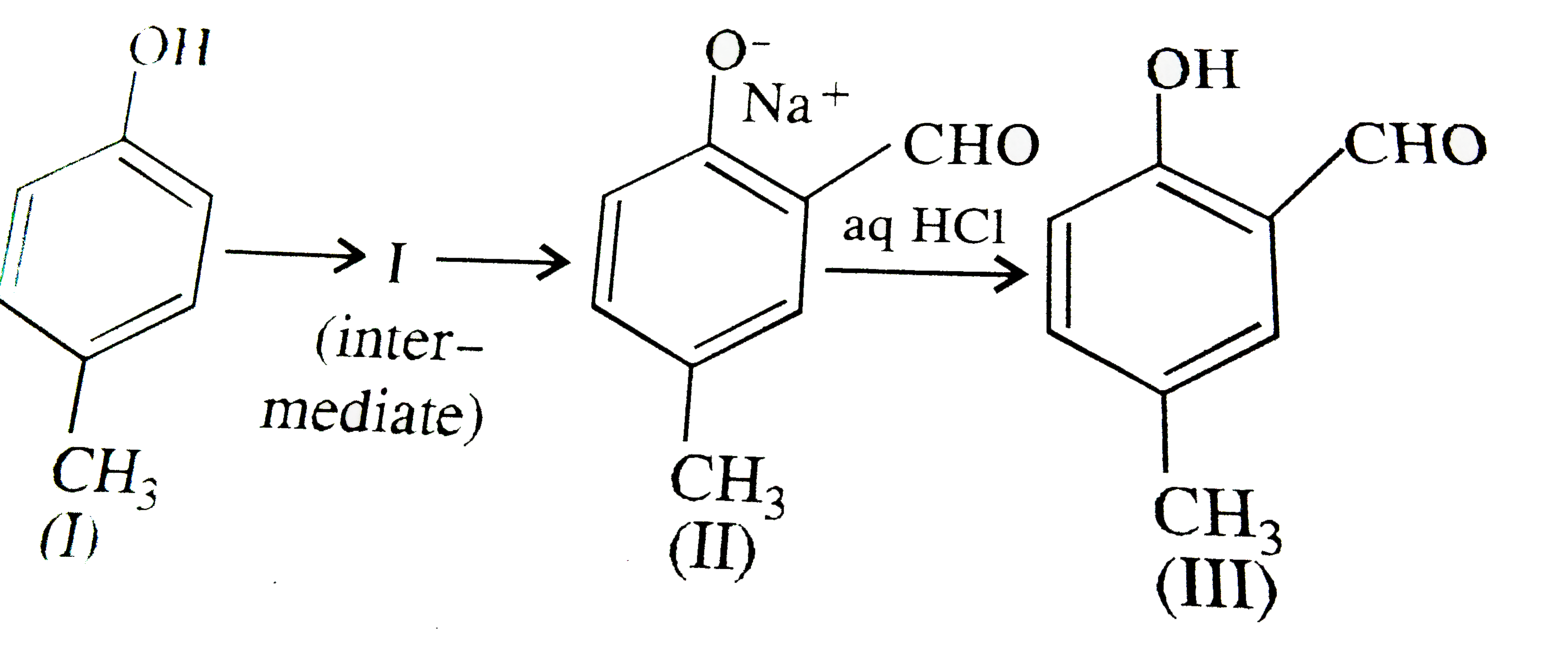
The structure of the intermediate is
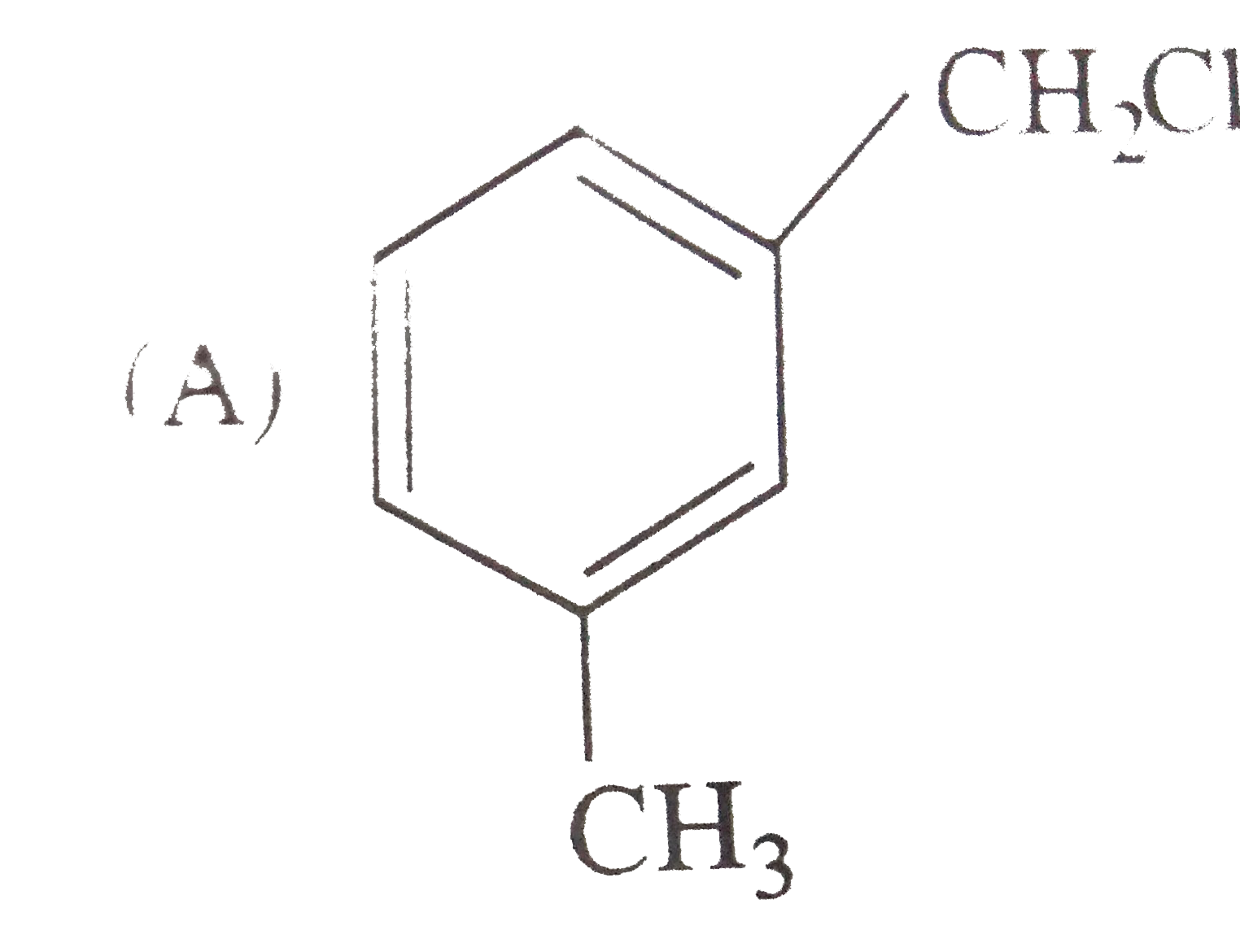
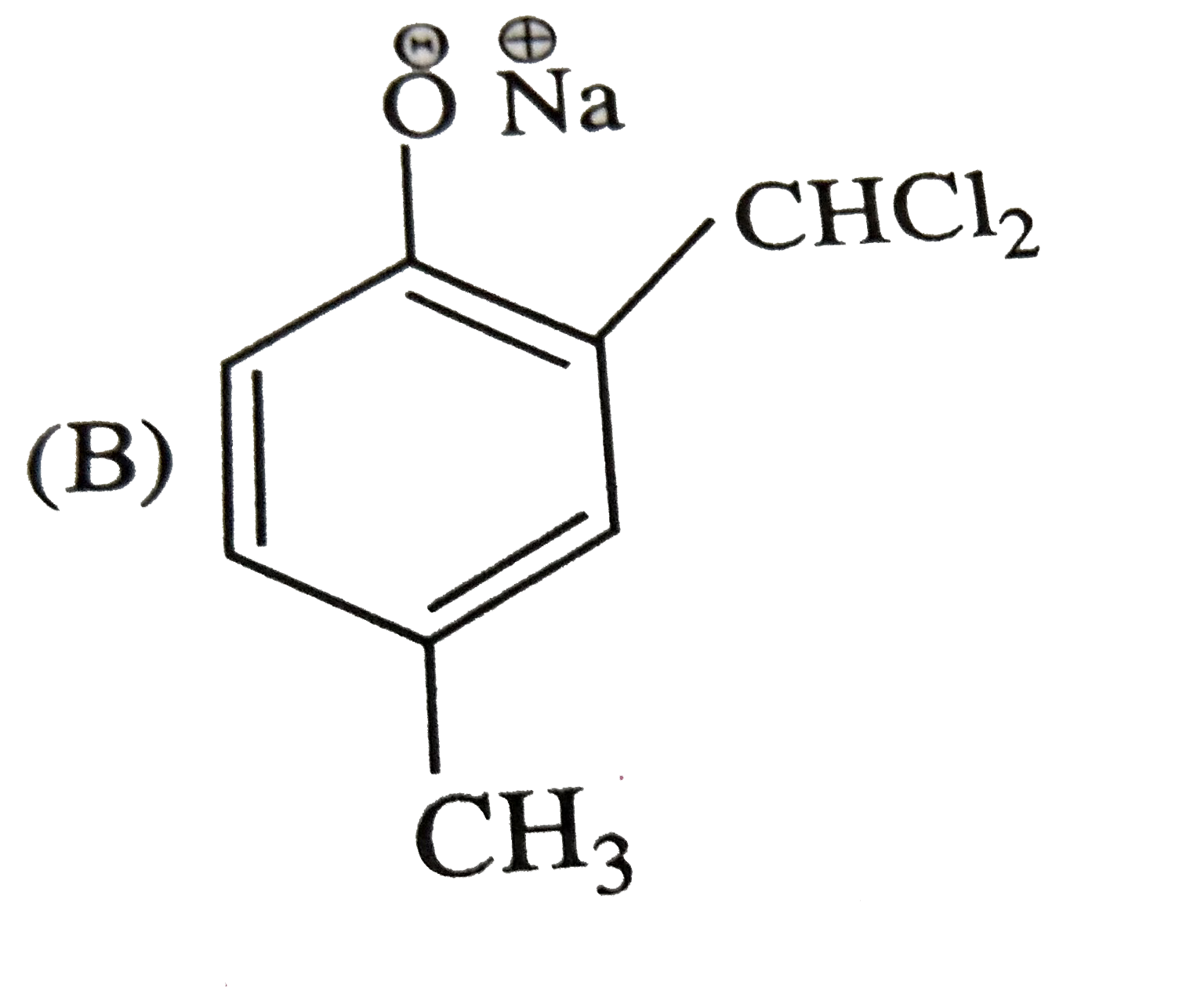
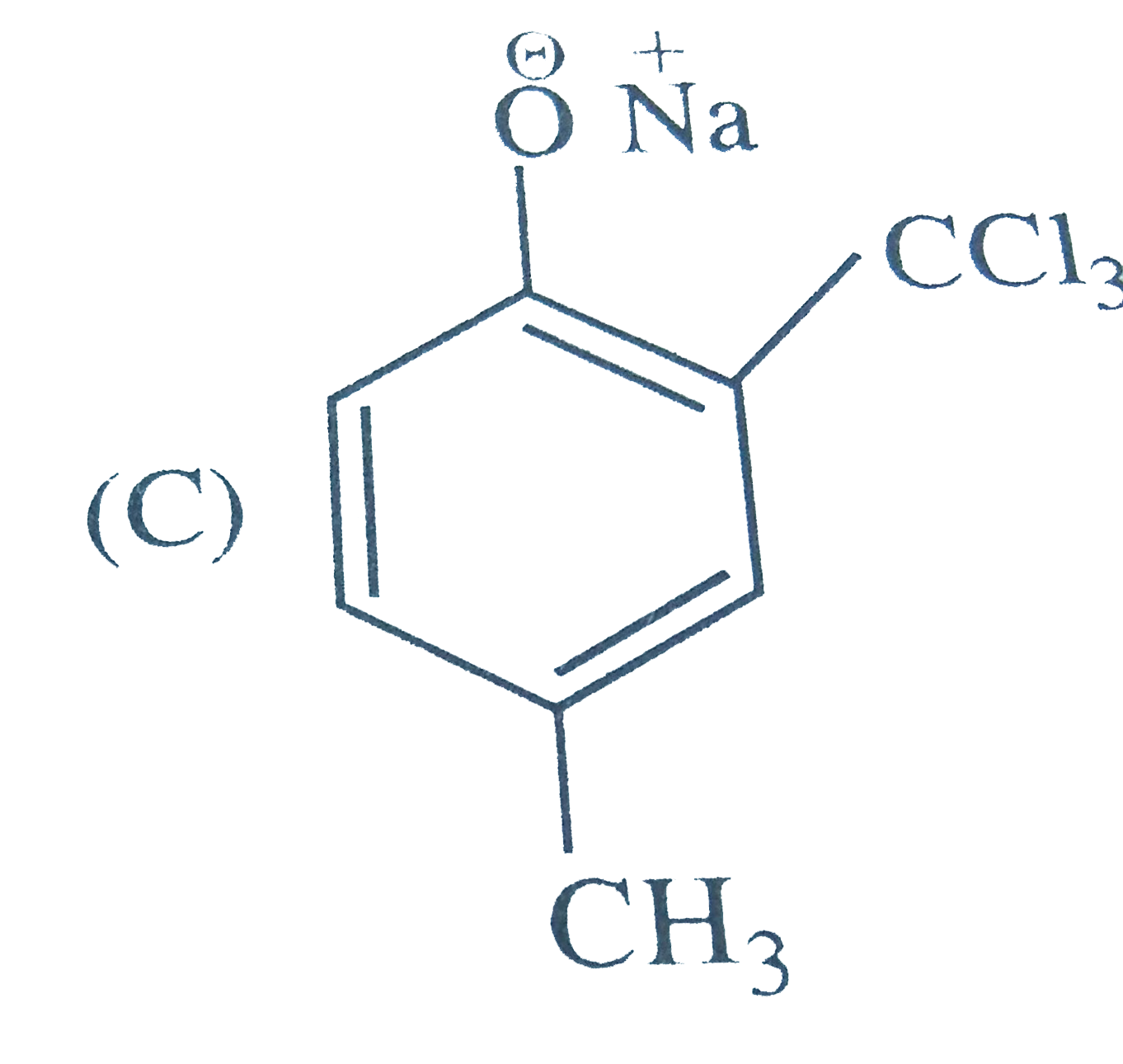
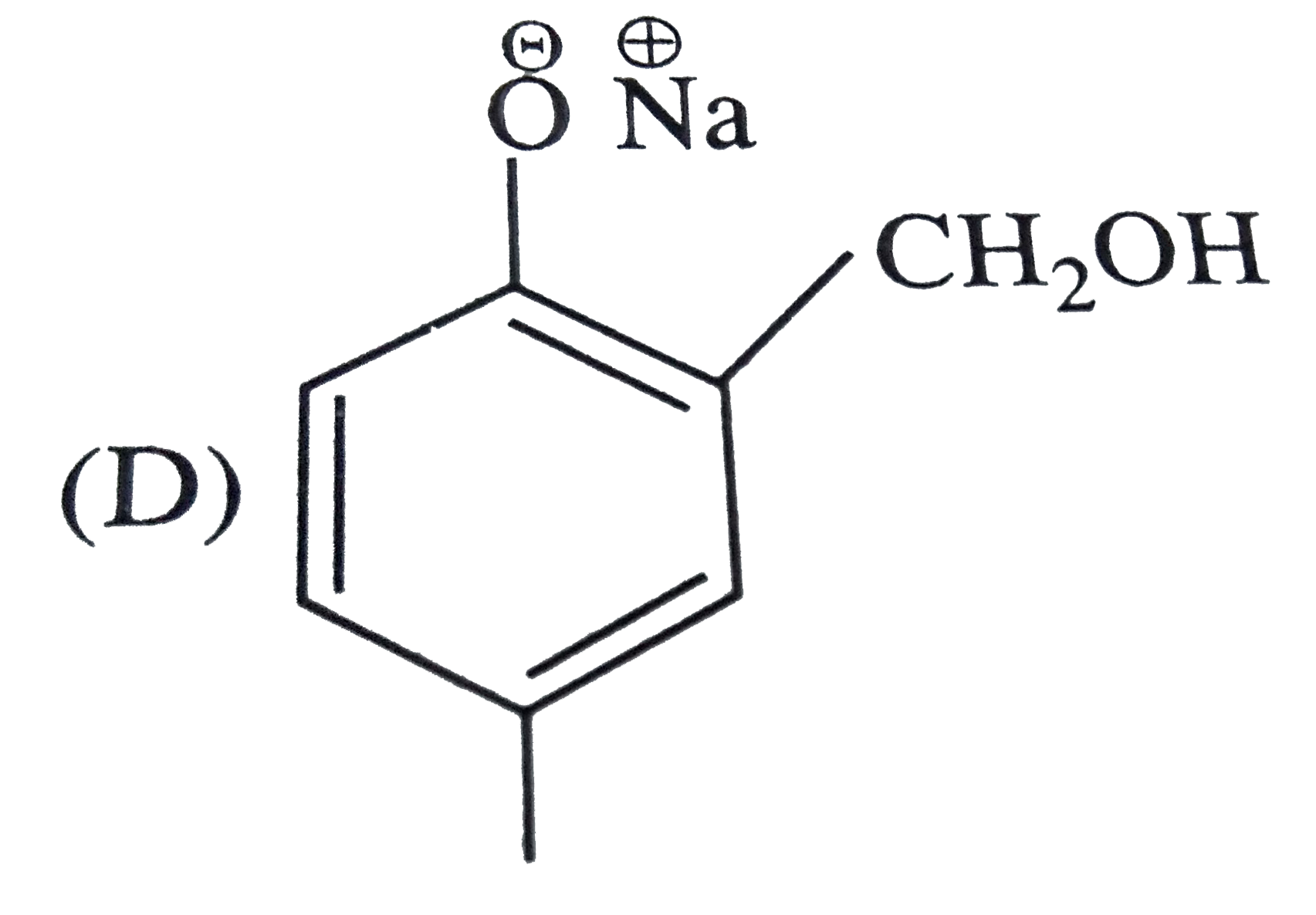
The correct Answer is:B
Topper's Solved these Questions
- ALCOHOLS AND PHENOLSBOOK - DINESH PUBLICATIONCHAPTER - ALCOHOLS AND PHENOLSEXERCISE - Matrix Match Type MCQs
2 Videos
- ALCOHOLS AND PHENOLSBOOK - DINESH PUBLICATIONCHAPTER - ALCOHOLS AND PHENOLSEXERCISE - Reason Assertion Type MCQs
17 Videos
- ALCOHOLS AND PHENOLSBOOK - DINESH PUBLICATIONCHAPTER - ALCOHOLS AND PHENOLSEXERCISE - Selected Straight Objective Type MCQs
55 Videos
- APPENDICESBOOK - DINESH PUBLICATIONCHAPTER - APPENDICESEXERCISE - Multiple choice
76 Videos
Similar Questions
Reimer -Tiemann reaction introduces an aldehyde group on to the aromatic ring of phenol, ortho to the hydroxyl group. This reaction involves electrophilic aromatic substitution. This is a general method for the synthesis of substituted salicyladehydes as depicted below.
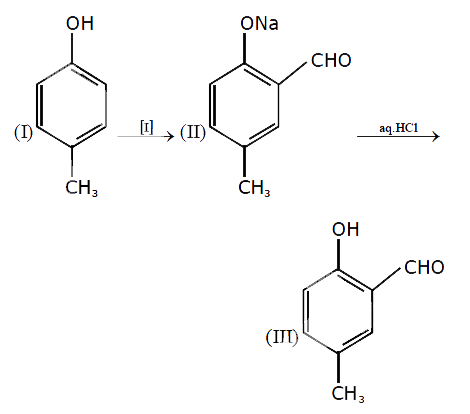
The structure of the intermediate I is
View SolutionReimer -Tiemann reaction introduces an aldehyde group on to the aromatic ring of phenol, ortho to the hydroxyl group. This reaction involves electrophilic aromatic substitution. This is a general method for the synthesis of substituted salicyladehydes as depicted below.
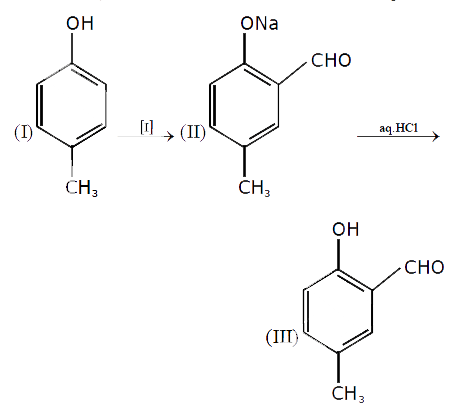
The electrophile in this reaction is
View Solution
Knowledge Check
Reimer Tiemann reaction introduces an aldehyde group, on to the ring of phenol, ortho to hydroxyl group. The reaction involves electro-philic aromatic substitution. This is a general method for synthesis of substituted salicyladehyde as depicted below
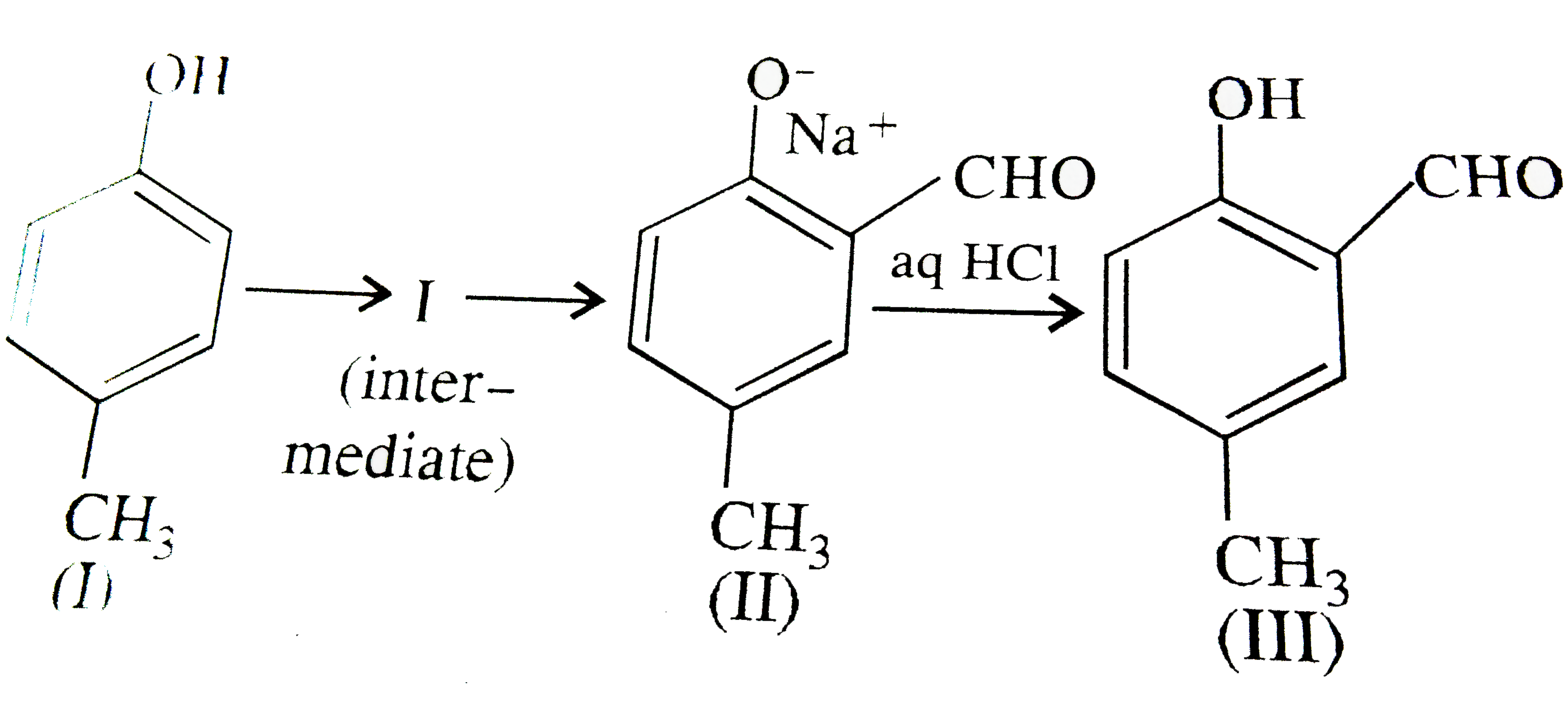
The electrophile in this reaction isA:CHClB+CHCl2C:CCl2D.CCl3Reimer-Tiemann reaction introduces an aldehyde group, on to the aromatic ring of phenol, ortho to the hydroxyl group. This reaction involves electrophilic aromatic substitution. This is a general method for the synthesis of substituted salicyladehydes as depicted below.
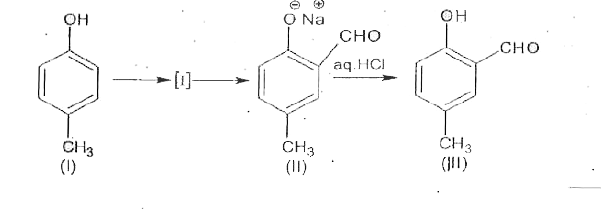
The structure of the intermediate I isA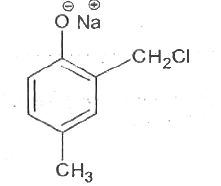 B
B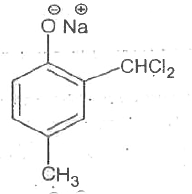 C
C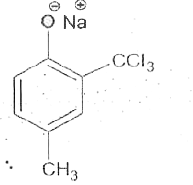 D
D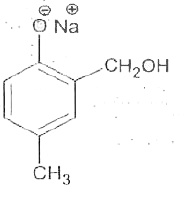
Reimer Tiemann reaction introduces an aldehyde group, on to the ring of phenol, ortho to hydroxyl group. The reaction involves electro-philic aromatic substitution. This is a general method for synthesis of substituted salicyladehyde as depicted below
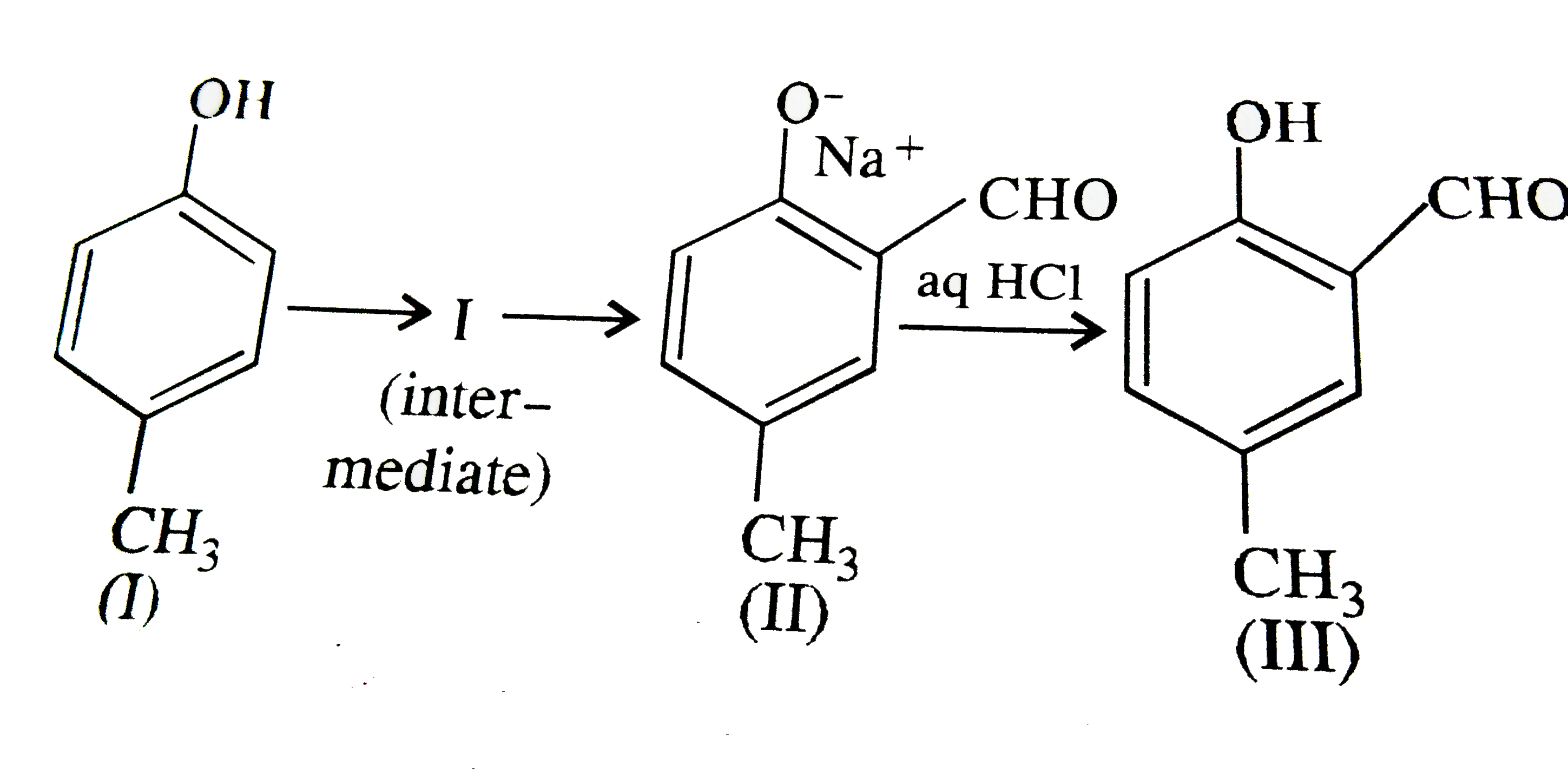
Which one of the following reagents is used in the above reactionsAaq NaOH+CH3ClBaq NaOH+CH2Cl2Caq NaOH+CH3Cl3Daq NaOH+CCl4
Riemer-Tiemann reaction intorduces an aldehyde group, on to the aromatic ring of phenol, ortho to the hydroxyl group. This reaction involves electrophilic aromatic substitution. This is a general method for the synthesis of substitued salicyladehydes as depicted below.

The structure of the intermediate I is:
View SolutionReimer-Tiemann reaction introduces an aldehyde group on to the aromatic ring of phenol, ortho to the hydroxyl group. This reacrtion involves electrophilic aromatic subsititution. It is a general method for the synthesis of subsituted salicyladehydes as depiced below:
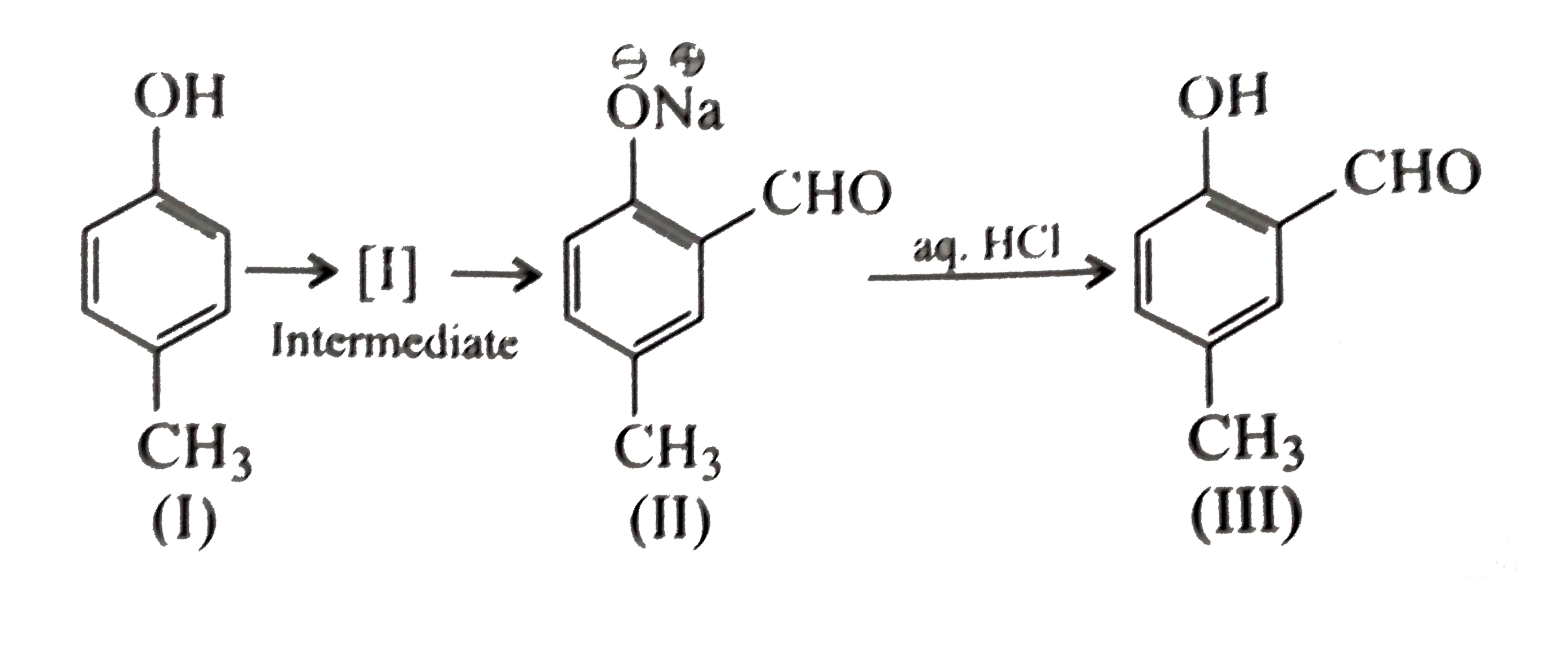
The structure of the intremediate (I) is:
View Solution
Reimer-Tiemann reaction introduces an aldehyde group on to the aromatic ring of phenol, ortho to the hydroxyl group. Thi reaction involves electrophilic aromatic substitution. It is a general method for the synthesis of substituted salicylaldehydes as depicted below:
Q. The structure of intermediate (I) is:
View SolutionReimer-Tiemann reaction introduces an aldehyde group, on to the aromatic ring of phenol, ortho to the hydroxyl group. This reaction involves electrophilic aromatic substitution. This is a general method for the synthesis of substituted salicyladehydes as depicted below.
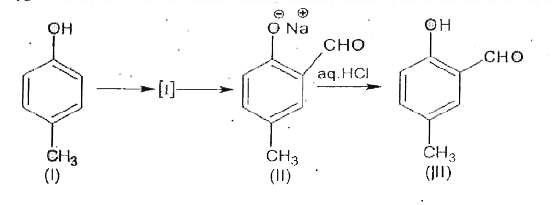
The electrophile in this reaction is
View SolutionReimer-Tiemann reaction introduces an aldehyde group, on to the aromatic ring of phenol, ortho to the hydroxyl group. This reaction involves electrophilic aromatic substitution. This is a general method for the synthesis of substituted salicyladehydes as depicted below.

Which one of the following reagents is used in the above reaction ?
View Solution

